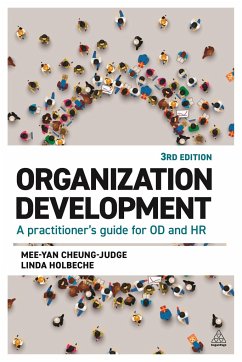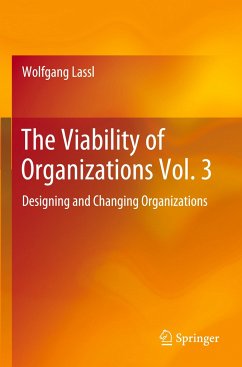
Intelligent Organizations
Powerful Models for Systemic Management
Versandkostenfrei!
Versandfertig in 6-10 Tagen
65,99 €
inkl. MwSt.
Weitere Ausgaben:

PAYBACK Punkte
33 °P sammeln!
This fully updated second edition presents powerful models, based on organizational cybernetics and system dynamics, in a way that lets readers apply them immediately in practice. It is a rich source for ideas for the improvement of any kind of organization.
This is not a book about how to run a company. It is about how to look at the world differently. Ultimately, this will help the reader to deal with complexity more effectively. The market today is flooded with books which claim to show paths to higher organizational effectiveness. Most of these recommendations are given as "recipes for success" and on pragmatic grounds. This book, however, is targeted at all those who want access to the powerful models of systemic manageme nt in order to improve their skills in coping with complexity. The contents are of interest to people who deal with organizations - as leaders and mana gers or specialists, or as advanced students. The purpose is to give them conceptual and methodological guidelines by means of which they can. - Increase the "intelligence" of exis ting organizations by introducing or substituting a better design; - Shape new organizations so that they are "intelligent" from the very start. What are the distinctive features of this book? The book is the result of a long term research effort in to the deep seated, invariant features of organizations, ba sed on the Systems Approach, namely, Organizational Cybernetics and System Dynamics. These sciences have specialized in uncovering such basi c properties. They convey a fresh, sophisticated and unorthodox perspective. It is therefore worthwhile acq uiring the capability of looking at the social world in this different way.














